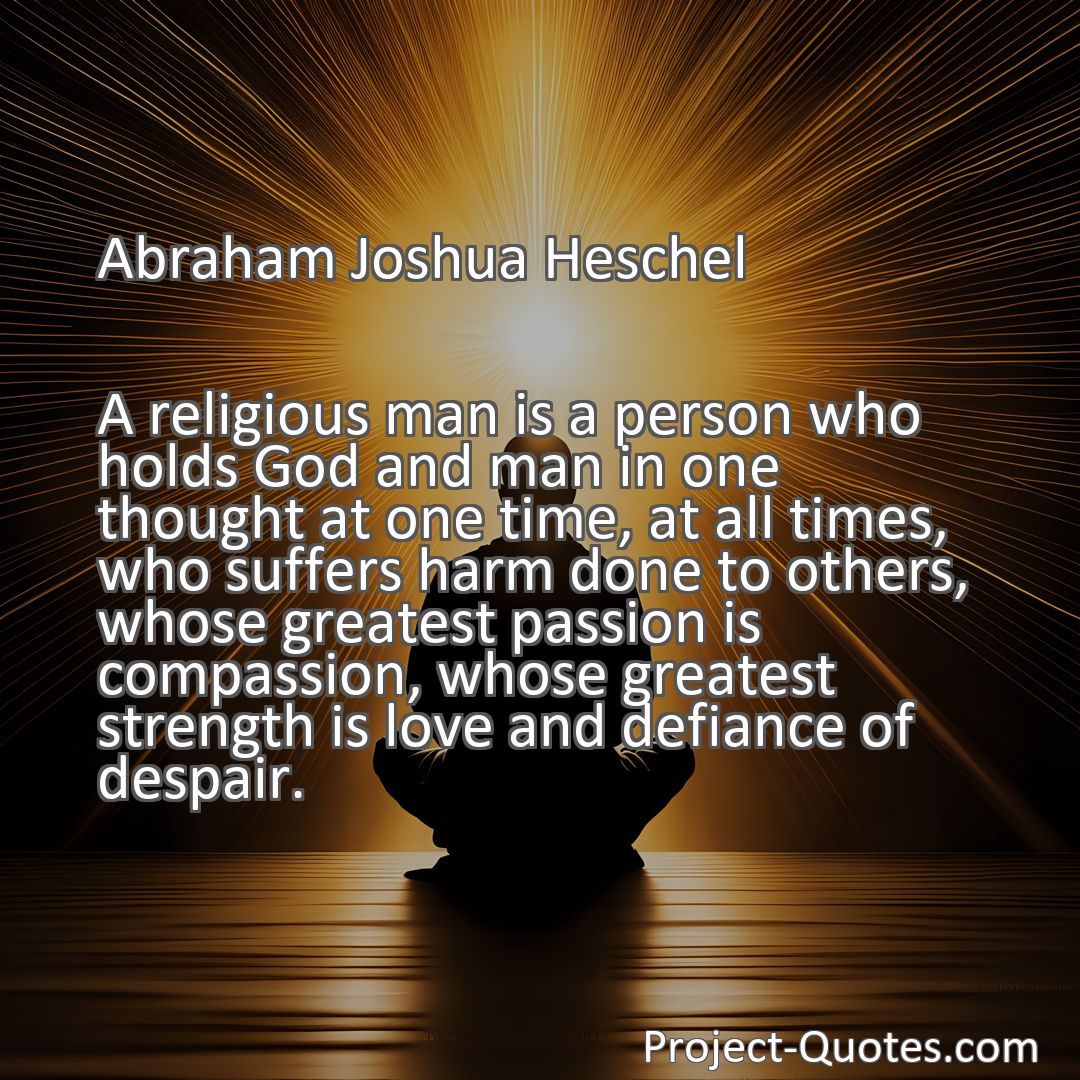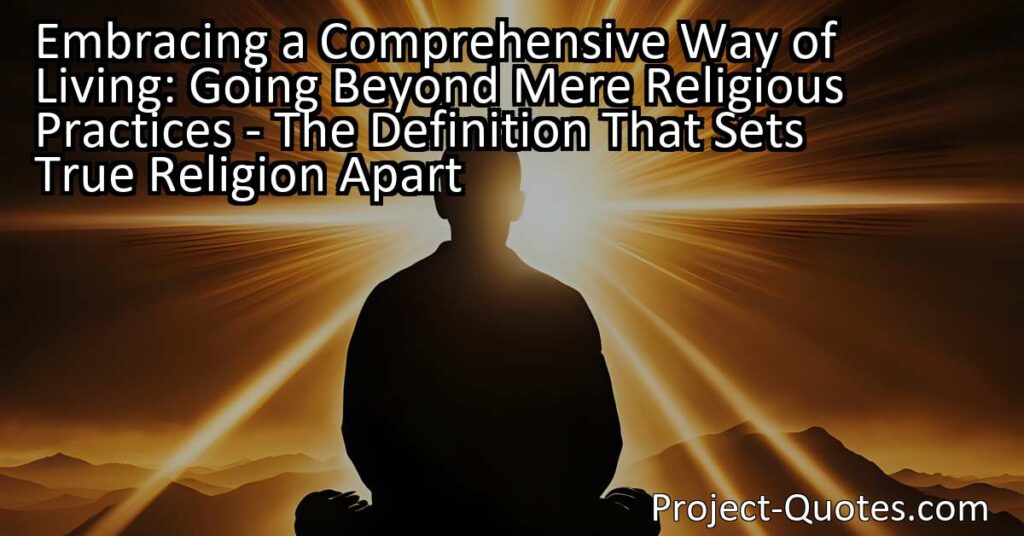A religious man is a person who holds God and man in one thought at one time, at all times, who suffers harm done to others, whose greatest passion is compassion, whose greatest strength is love and defiance of despair.
Abraham Joshua Heschel
Embracing a Comprehensive Way of Living: Going Beyond Mere Religious Practices – The Definition That Sets True Religion Apart This engaging summary explores Abraham Joshua Heschel’s thought-provoking definition of true religion, which goes beyond mere religious practices. It emphasizes the importance of embodying love, compassion, and a sense of shared humanity, actively working towards a more inclusive and equitable world. By embracing these qualities, we not only become better religious individuals but also contribute to the betterment of society as a whole.
Table of Contents
- 1 A religious man is a person who holds God and man in one thought at one time, at all times, who suffers harm done to others, whose greatest passion is compassion, whose greatest strength is love and defiance of despair.
- 2 Abraham Joshua Heschel
- 3 Meaning of Quote – A religious man is a person who holds God and man in one thought at one time, at all times, who suffers harm done to others, whose greatest passion is compassion, whose greatest strength is love and defiance of despair.
- 4 Freely Shareable Quote Image
- 5 Related
Meaning of Quote – A religious man is a person who holds God and man in one thought at one time, at all times, who suffers harm done to others, whose greatest passion is compassion, whose greatest strength is love and defiance of despair.
Abraham Joshua Heschel once said, “A religious man is a person who holds God and man in one thought at one time, at all times, who suffers harm done to others, whose greatest passion is compassion, whose greatest strength is love and defiance of despair.” These profound words shed light on what it truly means to be religious in today’s world.
To be religious is often associated with practicing a particular faith or adhering to a set of religious rituals. However, Heschel’s definition goes beyond mere religious practices; it encompasses a comprehensive way of living and interacting with others. It is about embracing a mindset that merges the divine and the human, recognizing the inherent connection between God and humanity.
In today’s society, we often witness a disconnect between religion and empathy. It is not uncommon to find individuals who claim to be religious but fail to embody the qualities outlined by Heschel. The quote emphasizes the importance of bridging this gap and urges us to adopt a mindset that places the well-being of others at the forefront.
When Heschel mentions someone who holds God and man in one thought at one time, he captures the essence of a religious person. This means acknowledging the humanity and divinity in every individual, treating others with respect, kindness, and compassion. It implies seeing the divine spark in every human being and recognizing the shared humanity amongst us all.
In today’s fast-paced and chaotic world, it is easy to become desensitized to the suffering of others. We might be quick to dismiss or overlook the harm done to others, whether it be due to our busy schedules, personal biases, or simply a lack of empathy. Nonetheless, Heschel reminds us that a truly religious person is one who not only acknowledges the harm done to others but also genuinely suffers alongside them.
Compassion lies at the core of religious teachings, and Heschel emphasizes its significance as the greatest passion of a religious individual. Compassion goes beyond feeling sorry for someone; it involves actively seeking to alleviate their suffering and working towards creating a more just and equitable society. By embodying compassion, religious individuals become beacons of hope, spreading love and kindness wherever they go.
Moreover, Heschel highlights that the greatest strength of a religious person is their ability to love and defy despair. In a world filled with challenges, inequalities, and injustices, it is easy to fall into despair and lose hope. However, Heschel’s words encourage us to draw strength from our religious beliefs, to find solace in the love we have for humanity, and to resist despair through our actions.
Religion, at its core, is meant to inspire individuals to live virtuously and to be a force for good in the world. It is not solely about personally experiencing spirituality, but also about extending that spirituality to the way we treat others. A religious person, as Heschel describes, is one who seeks to bring about positive change, who fights for justice, who uplifts the marginalized, and who offers love and compassion to all, regardless of their background.
In conclusion, Abraham Joshua Heschel’s quote offers a valuable and thought-provoking insight into what it means to be religious. It challenges us to move beyond the confines of religious rituals and delve into a way of living that encompasses love, compassion, and a sense of shared humanity. It asks us to consider the impact of our actions on others and to actively work towards a more inclusive and equitable world. By embodying the qualities described by Heschel, we not only become better religious individuals but also contribute to the betterment of society as a whole.
I hope this quote inspired image brings you hope and peace. Share it with someone who needs it today!


